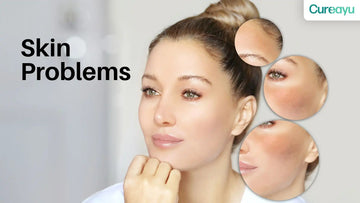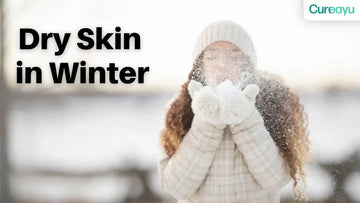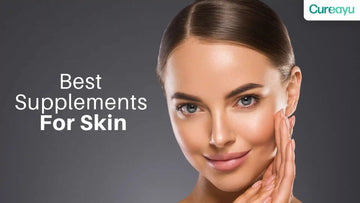In our quest for eternal youth, the battle against aging is one that many of us engage in. From fine lines to wrinkles, sagging skin to age spots, the signs of aging can be relentless. However, understanding the symptoms, causes, and treatment options can empower us to fight back effectively. In this comprehensive guide, we delve deep into the world of anti-aging, exploring everything from common symptoms to cutting-edge treatments.
Recognizing Anti-Aging Symptoms
- Fine lines and wrinkles
- Sagging skin
- Age spots and pigmentation
- Loss of elasticity
- Dull or uneven skin tone
- Dryness and dehydration
Also Read: Managing Scalp Yeast Infections: Protecting Hair and Scalp Health
Causes of Premature Aging:
- UV exposure and sun damage
- Genetics and hereditary factors
- Lifestyle choices (smoking, poor diet, lack of exercise)
- Environmental pollution
- Stress and lack of sleep
- Hormonal changes
Understanding the Role of Collagen:
Importance of Collagen in Skin Health
Collagen is a protein that serves as a major building block in the body, providing structure and elasticity to various tissues, including the skin. In the skin, collagen helps maintain its firmness, suppleness, and youthful appearance. It supports skin hydration and resilience, contributing to a smooth and healthy complexion.
Decline of Collagen Production with Age
As we age, the body's natural production of collagen decreases. This decline typically begins in our mid-20s and accelerates in our 30s and beyond. Factors such as sun exposure, pollution, smoking, and poor diet can further accelerate collagen degradation. The reduction in collagen leads to visible signs of aging, including wrinkles, fine lines, sagging skin, and loss of elasticity.
Effects of Collagen Loss on Skin Elasticity and Firmness
The decrease in collagen production results in decreased skin elasticity and firmness. Skin starts to lose its ability to bounce back, leading to sagging and wrinkles. Additionally, reduced collagen levels contribute to thinner skin, making it more prone to damage and slower to heal.
Ways to Boost Collagen Production Naturally
There are several natural methods to stimulate collagen production in the skin:
- Healthy Diet: Consuming foods rich in vitamin C, zinc, copper, and antioxidants can support collagen synthesis. Examples include citrus fruits, berries, nuts, seeds, and leafy greens.
- Collagen-Boosting Supplements: Certain supplements, such as collagen peptides, can help increase collagen production when taken orally.
- Topical Treatments: Using skincare products containing ingredients like retinoids, peptides, vitamin C, and niacinamide can stimulate collagen production when applied directly to the skin.
- Lifestyle Choices: Avoiding excessive sun exposure, quitting smoking, staying hydrated, getting adequate sleep, and managing stress can all contribute to maintaining healthy collagen levels in the skin.
Also Read: Benefits Of Deep Breathing & How To Practice It
Exploring Anti-Aging Skincare
Importance of a Consistent Skincare Routine
Consistency is key in skincare to achieve and maintain optimal results. A regular routine ensures that the skin receives essential nutrients, hydration, and protection consistently, helping to address and prevent signs of aging.
Key Ingredients for Anti-Aging
- Retinol: A derivative of vitamin A, retinol promotes cell turnover, stimulates collagen production, and helps reduce the appearance of wrinkles and fine lines.
- Hyaluronic Acid: Known for its hydrating properties, hyaluronic acid attracts and retains moisture in the skin, plumping and smoothing fine lines.
- Vitamin C: A potent antioxidant, vitamin C brightens the skin, evens out skin tone, and protects against environmental damage by neutralizing free radicals.
Sun Protection and SPF Usage
Sunscreen is essential for protecting the skin from harmful UV radiation, which can accelerate aging and lead to skin damage, including wrinkles, sunspots, and sagging. Daily application of a broad-spectrum sunscreen with SPF 30 or higher is recommended.
Moisturization and Hydration
Proper hydration is crucial for maintaining skin health and elasticity. Using moisturizers containing ingredients like glycerin, ceramides, and hyaluronic acid helps replenish moisture and strengthen the skin barrier.
Exfoliation for Skin Renewal
Regular exfoliation removes dead skin cells, allowing for better absorption of skincare products and promoting cell turnover. Chemical exfoliants like alpha hydroxy acids (AHAs) and beta hydroxy acids (BHAs) help smooth the skin's texture and improve radiance.
Serums and Treatments for Targeted Concerns
Serums and specialized treatments can address specific anti-aging concerns, such as dark spots, uneven texture, or loss of firmness. Ingredients like peptides, growth factors, and antioxidants can provide targeted benefits for improving skin tone and texture.
Revolutionary Treatments
- Botox injections for wrinkle reduction
- Dermal fillers for volume restoration
- Laser therapy for skin rejuvenation
- Chemical peels for exfoliation and renewal
- Microdermabrasion for smoother skin texture
- Platelet-rich plasma (PRP) therapy for collagen stimulation
Lifestyle Changes for Anti-Aging:
- Balanced diet rich in antioxidants and nutrients
- Regular exercise for overall health and circulation
- Stress management techniques (meditation, yoga)
- Sufficient sleep and relaxation
- Avoidance of smoking and excessive alcohol consumption
- Hydration and adequate water intake
Conclusion
In the pursuit of ageless beauty, understanding the symptoms, causes, and treatment options for anti-aging is paramount. From skincare routines to revolutionary treatments like Botox, the journey to youthful, glowing skin is multifaceted. By incorporating lifestyle changes, embracing innovative therapies, and prioritizing self-care, we can defy the hands of time and revel in radiant, age-defying beauty for years to come.












